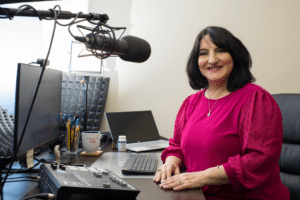How addictive is Adderall? That is a question on the mind of most parents when they face the choice to put their child on stimulant medication. It is important for parents to understand the research and potential side effects.
A study done by Weyandt et al. (2018) shows that while Adderall may be an effective treatment for individuals with ADHD symptoms when used as directed under medical supervision, its misuse and abuse have become a growing concern, particularly among adolescents and young adults. The review highlights the role of dopamine release, stimulant properties, tolerance development, and psychological factors in contributing to Adderall addiction.
Adderall’s addiction is a subject of significant debate and research. Understanding the risks associated with Adderall use among teens and children is crucial for both parents and healthcare professionals alike.
The prevalence of ADHD diagnoses and subsequent prescriptions for medications like Adderall has surged in recent decades. According to the Centers for Disease Control and Prevention (CDC), approximately 6.1 million children in the United States were diagnosed with ADHD as of 2016, with a significant portion receiving stimulant medications like Adderall to manage symptoms.
However, alongside legitimate medical use, there has been a concerning increase in the recreational use of Adderall among adolescents and young adults, often driven by factors such as academic pressure, perceived performance enhancement, and recreational experimentation.
Understanding Adderall

Adderall is a central nervous system stimulant that contains a combination of amphetamine and dextroamphetamine. When taken as prescribed, it works by increasing the levels of certain neurotransmitters in the brain, improving focus, attention, and impulse control in children with ADHD.
When misused, Adderall can have severe consequences beyond addiction and dependence. Its misuse may lead to adverse effects such as insomnia, rapid heart rate, high blood pressure, and even potential psychiatric symptoms like paranoia or hallucinations.
Additionally, long-term misuse can impact overarall health and may exacerbate existing mental health conditions. It's crucial to use Adderall only as prescribed by a healthcare professional and to seek help if you or someone you know is struggling with its misuse.
Is it ADHD or something else?
The Risk of Adderall Addiction
While Adderall addiction can occur in individuals of any age, adolescents and children may be particularly vulnerable due to their still-developing brains and susceptibility to peer influence.
Regular misuse or abuse of Adderall can lead to tolerance, wherein higher doses are required to achieve the desired effects, as well as dependence, characterized by withdrawal symptoms upon discontinuation. Additionally, the reinforcing effects of Adderall's stimulant properties can contribute to compulsive use patterns, further increasing the risk of addiction.
Why is Adderall Addictive?

Adderall, a prescription medication containing amphetamine and dextroamphetamine, is considered addictive due to its effects on the brain's reward system and neurotransmitter activity. Several factors contribute to its addictive potential:
Dopamine Release
Adderall increases the release of dopamine, a neurotransmitter associated with pleasure and reward, in the brain. This surge in dopamine levels produces feelings of euphoria and reinforces the desire to continue using the drug.
Stimulant Properties
As a central nervous system stimulant, Adderall enhances alertness, focus, and energy levels. Individuals may find these effects desirable and may seek to replicate them through repeated use, leading to dependence and addiction.
Tolerance Development
With continued use, the brain adapts to the presence of Adderall, requiring higher doses to achieve the same effects. This phenomenon, known as tolerance, can lead to escalating use patterns as individuals chase the initial euphoric effects of the drug.
Withdrawal Symptoms
Abrupt cessation of Adderall can result in withdrawal symptoms such as fatigue, depression, irritability, and cravings. These unpleasant symptoms can motivate individuals to continue using the drug to avoid withdrawal, perpetuating the cycle of addiction.
Psychological Factors
Beyond its physiological effects, Adderall addiction can also stem from psychological factors such as stress, low self-esteem, peer pressure, and co-occurring mental health disorders. Individuals may use Adderall as a coping mechanism to alleviate negative emotions or enhance performance in academic or social settings.
Accessibility and Social Norms
The widespread availability of Adderall, both through legitimate prescriptions and illicit channels, contributes to its misuse and addiction. Additionally, cultural attitudes and societal norms surrounding stimulant use, particularly in academic and professional contexts, may influence perceptions of Adderall as a performance-enhancing drug.
Co-occurring Disorders
Individuals with co-occurring mental health disorders, such as ADHD, depression, or anxiety, may be at heightened risk for Adderall addiction. The self-medicating behavior, whereby individuals use Adderall to alleviate symptoms of an underlying condition, can increase the likelihood of developing dependence and addiction.
While Adderall may be a tool in the management of ADHD symptoms, its potential for addiction and misuse among teens and children is a significant concern. Raising awareness of the risks associated with Adderall use and promoting responsible prescribing practices are crucial.
If you want to address your child's hyperactivity, impulsivity, or difficulties with focus and attention without using stimulant medications, download The Natural ADHD Focus Formula Kit and learn about alternative solutions. Boost your child’s attention, focus, and school performance using natural and holistic methods.
Is Adderall a controlled substance?
Yes, in most countries, including the United States, Adderall is classified as a Schedule II controlled substance due to its potential for misuse, dependence, and addiction. As a result, it can only be legally obtained with a prescription from a licensed healthcare provider, typically a physician or psychiatrist.
What is Adderall used for?
Adderall is primarily used to treat attention deficit hyperactivity disorder (ADHD) and narcolepsy. It helps improve focus, attention, and impulse control in individuals with ADHD, and it helps manage excessive daytime sleepiness in people with narcolepsy.
Why do people abuse Adderall?
People may abuse Adderall for various reasons, including seeking euphoria, increased energy, and improved concentration beyond what is medically necessary. Some individuals may misuse it as a study aid or to enhance performance in tasks requiring focus and alertness. Additionally, some people may misuse Adderall recreationally to experience its stimulant effects.
Is Adderall an opioid?
No, Adderall is not an opioid. It is a central nervous system stimulant that contains a combination of amphetamine and dextroamphetamine. Opioids, on the other hand, are a class of drugs that primarily act on the opioid receptors in the brain to relieve pain and produce feelings of euphoria.
Is Adderall a narcotic?
No, Adderall is not classified as a narcotic. It is a central nervous system stimulant medication that contains a combination of amphetamine and dextroamphetamine. Narcotics, on the other hand, typically refer to opioid medications or illegal drugs derived from opium that are used to relieve pain or produce a feeling of euphoria.
Why is Adderall addictive?
Adderall can be addictive due to its effects on the brain's dopamine and norepinephrine systems. When taken, it increases the levels of these neurotransmitters, which can lead to feelings of euphoria and increased energy. Over time, the brain may rely on these elevated levels, leading to dependence. Additionally, the reinforcing effects of Adderall, significantly when misused for its stimulant effects, can contribute to its addictive potential.
How easy is it to get addicted to Adderall?
For individuals using Adderall as prescribed for legitimate medical reasons, the risk of addiction is generally low. However, misuse or abuse of Adderall, especially at higher doses or for non-medical purposes, can significantly increase the risk of addiction.
Is Adderall bad for you?
Adderall can be both beneficial and potentially harmful, depending on how it is used. When taken as prescribed under the supervision of a healthcare professional, Adderall can effectively manage symptoms of ADHD or narcolepsy and improve the quality of life for many individuals. However, misuse or abuse of Adderall can lead to various adverse effects, including addiction, cardiovascular problems, psychiatric symptoms, and other health risks.
Is Adderall habit forming?
Yes, Adderall can be habit-forming. It contains amphetamine and dextroamphetamine, which are stimulants that affect the brain's dopamine and norepinephrine systems. When taken consistently over time, especially at higher doses or when misused, Adderall can lead to dependence, where the body becomes reliant on the drug to function normally. This dependence can contribute to the development of a habit or addiction to Adderall.
Citations
Centers for Disease Control and Prevention (CDC). (2016). “Attention-Deficit / Hyperactivity Disorder (ADHD): Data & Statistics.” Retrieved from https://www.cdc.gov/ncbddd/adhd/data.html
Weyandt, L., White, T., Gudmundsdottir, B., Nitenson, A., Rathkey, E., De Leon, K., & Bjorn, S. (2018). Neurocognitive, Autonomic, and Mood Effects of Adderall: A Pilot Study of Healthy College Students. Pharmacy, 6(3), 58. https://doi.org/10.3390/pharmacy6030058
Dr. Roseann is a mental health expert in ADHD who is frequently in the media:
- She Knows 11 Products Moms of Kids With ADHD Swear By to Maintain Order in the Chaos
- The Healthy 12 Silent Signs of Adult ADHD You Might Be Ignoring
- Helping Children Thrive Podcast Benefits of Neurofeedback for Children with ADHD
Always remember… “Calm Brain, Happy Family™”
Disclaimer: This article is not intended to give health advice and it is recommended to consult with a physician before beginning any new wellness regime. *The effectiveness of diagnosis and treatment vary by patient and condition. Dr. Roseann Capanna-Hodge, LLC does not guarantee certain results.
Are you looking for SOLUTIONS for your struggling child or teen?
Dr. Roseann and her team are all about science-backed solutions, so you are in the right place!
Is it ADHD or something else?
Take the Quiz to Find Out Why Your Kid Can’t Focus, Listen, or Complete Tasks
Dr. Roseann is a Children’s Mental Health Expert and Licensed Therapist who has been featured in/on hundreds of media outlets including The Mel Robbins Show, CBS, NBC, PIX11 NYC, Today, FORBES, CNN, The New York Times, The Washington Post, Business Insider, Women’s Day, Healthline, CNET, Parade Magazine and PARENTS. FORBES called her, “A thought leader in children’s mental health.”

She coined the terms, “Re-entry panic syndrome” and “eco-anxiety” and is a frequent contributor to media on mental health.
Dr. Roseann Capanna-Hodge has three decades of experience in working with children, teens and their families with attention-deficit hyperactivity disorder (ADHD), autism, concussion, dyslexia and learning disability, anxiety, Obsessive Compulsive Disorder (OCD), depression and mood disorder, Lyme Disease, and PANS/PANDAS using science-backed natural mental health solutions such as supplements, magnesium, nutrition, QEEG Brain maps, neurofeedback, PEMF, psychotherapy and other non-medication approaches.
She is the author of three bestselling books, It’s Gonna Be OK!: Proven Ways to Improve Your Child's Mental Health, The Teletherapy Toolkit, and Brain Under Attack. Dr. Roseann is known for offering a message of hope through science-endorsed methods that promote a calm brain.
Her trademarked BrainBehaviorResetⓇ Program and It’s Gonna be OK!Ⓡ Podcast has been a cornerstone for thousands of parents facing mental health, behavioral or neurodevelopmental challenges.
She is the founder and director of The Global Institute of Children’s Mental Health, Neurotastic™Brain Formulas and Dr. Roseann Capanna-Hodge, LLC. Dr. Roseann is a Board Certified Neurofeedback (BCN) Practitioner, a Board Member of the Northeast Region Biofeedback Society (NRBS), Certified Integrative Mental Health Professional (CIMHP) and an Amen Clinic Certified Brain Health Coach. She is also a member of The International Lyme Disease and Associated Disease Society (ILADS), The American Psychological Association (APA), Anxiety and Depression Association of America (ADAA) National Association of School Psychologists (NASP), International OCD Foundation (IOCDF).
© Roseann-Capanna-Hodge, LLC 2024











